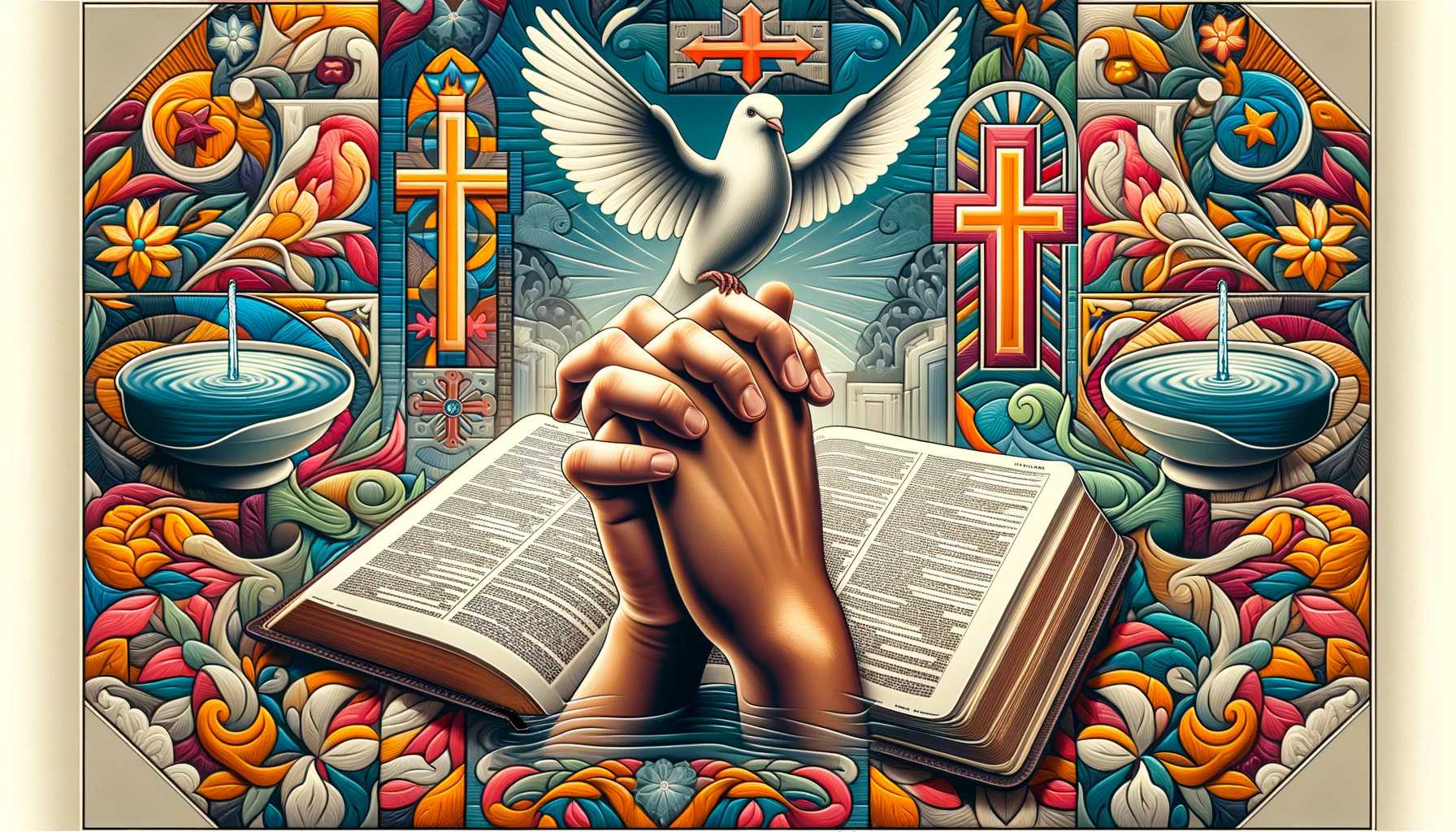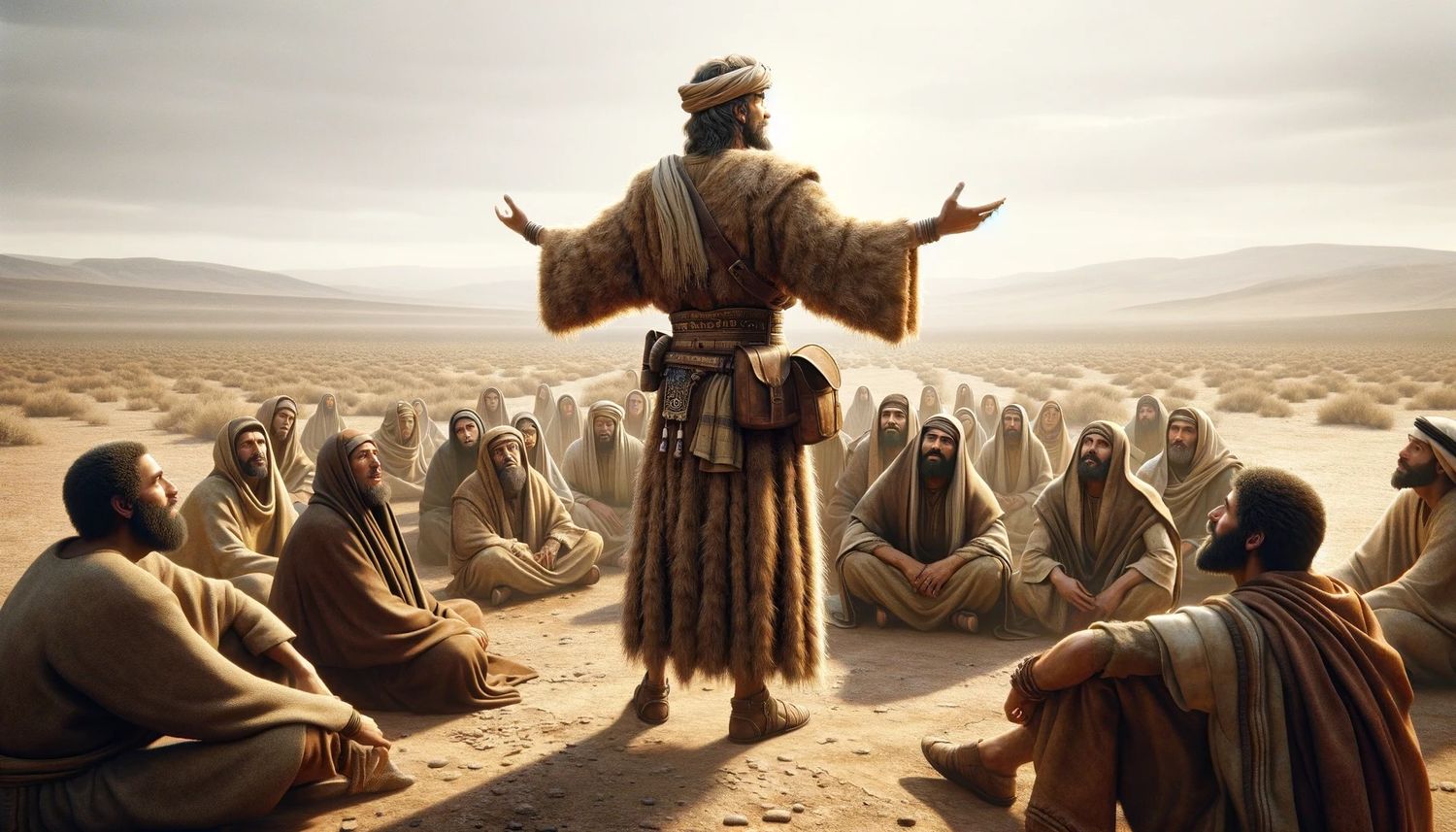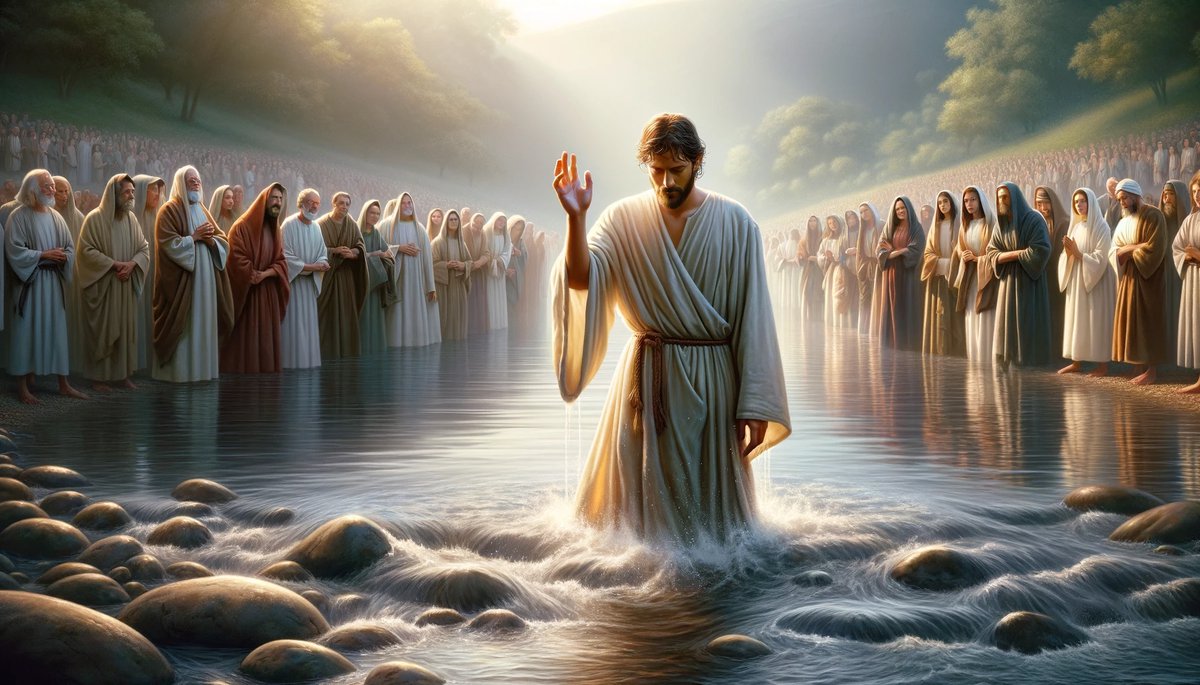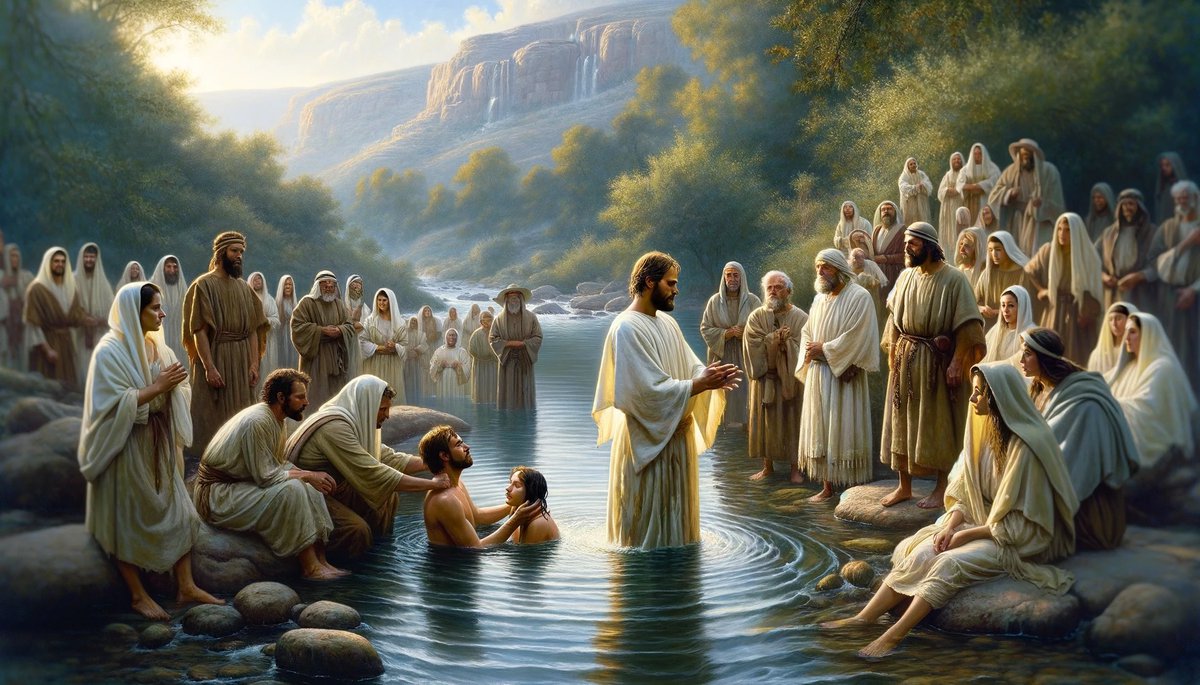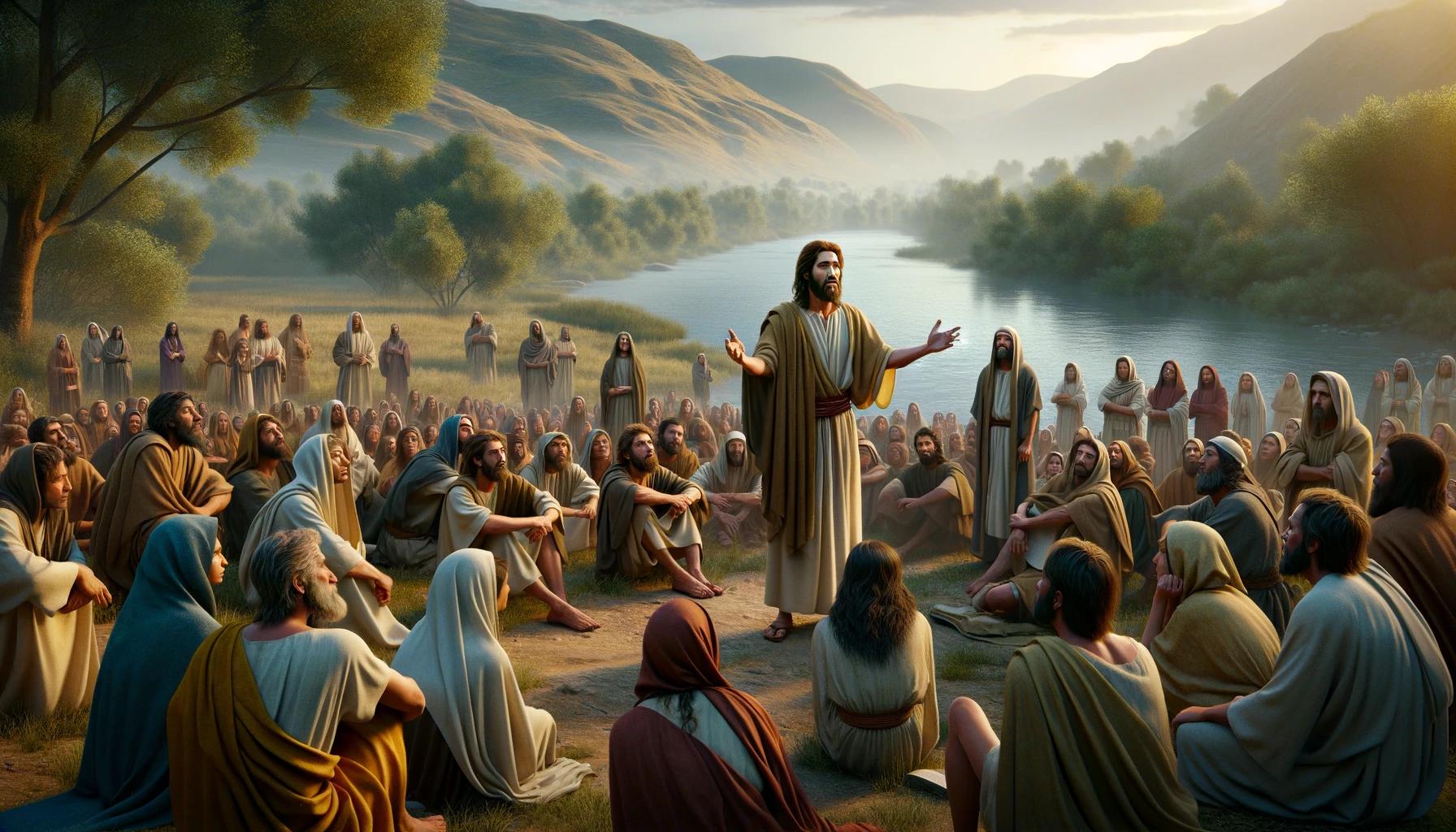Home>Theology and Spirituality>What Religion Was John The Baptist?


Theology and Spirituality
What Religion Was John The Baptist?
Published: February 24, 2024
Peter Smith, Editorial Director at Christian.net, combines deep insights into faith, politics, and culture to lead content creation that resonates widely. Awarded for his contributions to religious discourse, he previously headed a major organization for religious communicators, enhancing dialogue on faith's societal impacts.
Discover the religious beliefs of John the Baptist and explore his significance in theology and spirituality. Uncover the role of faith in his life and teachings.
(Many of the links in this article redirect to a specific reviewed product. Your purchase of these products through affiliate links helps to generate commission for Christian.net, at no extra cost. Learn more)
Table of Contents
Introduction
John the Baptist is a prominent figure in religious history, revered across multiple faith traditions for his pivotal role in preparing the way for the coming of a significant spiritual leader. His influence extends beyond Christianity, encompassing Judaism and Islam, where he is regarded with deep respect and admiration. Exploring the religious perspectives on John the Baptist provides a fascinating glimpse into the interconnectedness of these faiths and their shared reverence for this enigmatic figure.
This article delves into the multifaceted portrayal of John the Baptist in Christianity, Judaism, and Islam, shedding light on the diverse theological interpretations and cultural significance attributed to him within each tradition. By examining the distinct perspectives and narratives surrounding John the Baptist, we can gain a deeper understanding of the profound impact he has had on the spiritual landscape of these major world religions.
The enduring legacy of John the Baptist transcends religious boundaries, serving as a unifying symbol of spiritual devotion and prophetic insight. As we embark on this exploration of his portrayal in Christianity, Judaism, and Islam, we will uncover the rich tapestry of beliefs and interpretations that have contributed to his enduring significance in the hearts and minds of believers across the globe.
Read more: What Is A Baptist Religion
John the Baptist in Christianity
In Christianity, John the Baptist holds a revered status as a central figure in the narrative of Jesus Christ's ministry. Described in the New Testament as a prophet and the herald of the Messiah, John the Baptist is celebrated for his unwavering commitment to preparing the way for the coming of Jesus. His significance is underscored by his baptism of Jesus in the River Jordan, a pivotal event symbolizing the initiation of Jesus' public ministry.
The portrayal of John the Baptist in Christian theology is deeply intertwined with themes of repentance, spiritual purification, and the fulfillment of divine prophecy. His austere lifestyle, characterized by a diet of locusts and wild honey, exemplifies his ascetic devotion and unwavering dedication to his divine calling. This portrayal of John the Baptist as a solitary and ascetic figure aligns with the broader Christian emphasis on humility, self-denial, and the pursuit of spiritual purity.
The Gospel accounts of Matthew, Mark, Luke, and John depict John the Baptist as a compelling and enigmatic figure, drawing multitudes to the wilderness to hear his impassioned preaching and receive baptism as a symbol of repentance. His proclamation of the imminent arrival of the Messiah resonated deeply with the Jewish community, sparking widespread anticipation and fervent hope for the fulfillment of ancient prophecies.
Within Christian tradition, John the Baptist is venerated as a model of uncompromising faith and courageous truth-telling. His fearless condemnation of moral wrongdoing, including his public criticism of King Herod's illicit marriage, exemplifies his unwavering commitment to upholding moral integrity and divine righteousness. This steadfast adherence to moral principles has cemented John the Baptist's legacy as a paragon of moral courage and spiritual fortitude within Christian teachings.
The enduring impact of John the Baptist in Christianity is further underscored by his recognition as the precursor to Jesus Christ, heralding the dawn of a new era in salvation history. His pivotal role in baptizing Jesus and proclaiming the arrival of the Messiah has solidified his position as a revered and transformative figure within Christian theology, inspiring believers to emulate his unwavering faith and resolute dedication to divine purpose.
In summary, the portrayal of John the Baptist in Christianity encapsulates a profound narrative of prophetic anticipation, spiritual purification, and unwavering commitment to divine calling. His enduring legacy as the herald of the Messiah continues to resonate deeply within Christian theology, serving as a timeless symbol of faith, repentance, and the transformative power of divine grace.
John the Baptist in Judaism
In Judaism, John the Baptist, known as Yohanan HaMatbil in Hebrew, occupies a unique and complex position within religious narratives and historical accounts. While John the Baptist is not explicitly mentioned in traditional Jewish scriptures, his significance is intertwined with the broader context of Jewish messianic expectations and the prophetic lineage that forms an integral part of Jewish religious consciousness.
Within Jewish tradition, John the Baptist is often viewed as a pivotal figure who bridges the prophetic legacy of ancient Israel with the emergence of Jesus Christ in Christian theology. His role as a herald of the Messiah aligns with the deep-rooted Jewish anticipation of a messianic deliverer who would usher in an era of spiritual redemption and national restoration. This shared anticipation of a messianic figure underscores the interconnectedness of Jewish and Christian eschatological beliefs, highlighting the enduring influence of John the Baptist across religious boundaries.
While John the Baptist's portrayal in Jewish texts is relatively limited, his baptismal practices and fervent proclamation of repentance resonate with the broader Jewish emphasis on spiritual purification and ethical renewal. His call for repentance and moral rectitude reflects the prophetic tradition within Judaism, emphasizing the enduring relevance of ethical introspection and spiritual transformation as essential components of religious devotion.
Moreover, the figure of John the Baptist evokes parallels with the prophetic archetype found in Jewish scriptures, particularly in the depiction of Elijah the Prophet. The association between John the Baptist and Elijah, a revered figure in Jewish tradition, further underscores the intricate interplay between Jewish and Christian narratives, illuminating the shared thematic elements that bind these religious traditions together.
While John the Baptist's portrayal in Judaism may not be as prominent as in Christianity, his enduring significance as a prophetic forerunner and herald of the Messiah resonates with the broader tapestry of Jewish messianic expectations and the enduring legacy of prophetic insight within Jewish religious consciousness.
In summary, the portrayal of John the Baptist in Judaism reflects his integral role in bridging the prophetic traditions of ancient Israel with the emergence of Christian theological narratives. His enigmatic presence within Jewish religious discourse underscores the interconnectedness of Jewish and Christian eschatological beliefs, highlighting the enduring influence of John the Baptist as a figure of profound theological significance within the broader tapestry of religious history.
John the Baptist in Islam
In Islam, John the Baptist, known as Yahya in Arabic, holds a revered status as a prophet and is celebrated for his unwavering commitment to delivering the message of monotheism and righteousness. His portrayal in Islamic tradition is deeply rooted in the Quran, where he is mentioned as a righteous and pious servant of God, entrusted with the prophetic mission of guiding people towards the path of moral rectitude and spiritual devotion.
The Quranic narrative portrays John the Baptist as a figure of exemplary virtue, steadfast in his dedication to God's commandments and unwavering in his commitment to upholding divine guidance. His role as a herald of truth and righteousness aligns with the broader Islamic emphasis on the prophetic mission of guiding humanity towards the worship of the One true God and the pursuit of ethical conduct.
Central to the Quranic depiction of John the Baptist is his unwavering commitment to calling people to repentance and moral uprightness. His fervent exhortations to eschew moral transgressions and embrace piety resonate deeply with the foundational principles of Islamic ethics, emphasizing the enduring relevance of moral rectitude and spiritual purification as essential components of religious devotion.
Moreover, the Quranic narrative underscores John the Baptist's pivotal role as a precursor to the prophetic mission of Jesus, whom Muslims revere as a mighty prophet and messenger of God. John the Baptist's recognition of Jesus' divine mission and his steadfast dedication to preparing the way for the advent of Jesus exemplify his profound commitment to the broader tapestry of prophetic guidance within Islamic theology.
In Islamic tradition, John the Baptist is venerated as a paragon of moral integrity and unwavering faith, embodying the timeless virtues of humility, devotion, and steadfastness in the face of adversity. His enduring legacy as a herald of divine truth and righteousness continues to inspire Muslims worldwide, serving as a timeless symbol of prophetic insight and unwavering commitment to the divine message.
In summary, the portrayal of John the Baptist in Islam encapsulates a narrative of prophetic steadfastness, moral rectitude, and unwavering commitment to the divine mission. His enduring significance within Islamic tradition underscores the profound impact of his prophetic guidance and unwavering dedication to upholding the principles of monotheism and moral righteousness.
Conclusion
The multifaceted portrayal of John the Baptist across Christianity, Judaism, and Islam underscores his enduring significance as a unifying figure within the tapestry of religious history. In Christianity, John the Baptist's pivotal role as the herald of the Messiah and his unwavering commitment to preparing the way for Jesus Christ exemplify his profound impact on the narrative of salvation and divine redemption. His steadfast dedication to proclaiming the imminent arrival of the Messiah continues to inspire believers to embrace the virtues of repentance, spiritual purification, and unwavering faith.
Within Judaism, John the Baptist's enigmatic presence serves as a bridge between the prophetic traditions of ancient Israel and the emergence of Christian theological narratives. His association with the prophetic archetype found in Jewish scriptures and his role as a herald of the Messiah resonate with the deep-rooted Jewish anticipation of a messianic deliverer, highlighting the interconnectedness of Jewish and Christian eschatological beliefs.
In Islam, John the Baptist's portrayal as a righteous and pious prophet underscores his unwavering commitment to calling people to repentance and moral uprightness. His recognition as a precursor to the prophetic mission of Jesus exemplifies his profound dedication to upholding the principles of monotheism and moral righteousness, serving as a timeless symbol of prophetic insight and unwavering commitment to the divine message.
The enduring legacy of John the Baptist transcends religious boundaries, uniting believers across diverse faith traditions in their reverence for his prophetic guidance and unwavering commitment to divine purpose. His portrayal as a figure of exemplary virtue, steadfast in his dedication to God's commandments, resonates with the foundational principles of humility, devotion, and moral integrity, inspiring individuals to emulate his unwavering faith and resolute dedication to divine calling.
As we reflect on the diverse perspectives and narratives surrounding John the Baptist in Christianity, Judaism, and Islam, we gain a deeper understanding of the profound impact he has had on the spiritual landscape of these major world religions. His enduring significance as a herald of divine truth and righteousness serves as a timeless reminder of the transformative power of faith, repentance, and the unwavering commitment to the divine mission, transcending temporal and cultural boundaries to inspire generations of believers across the globe.




